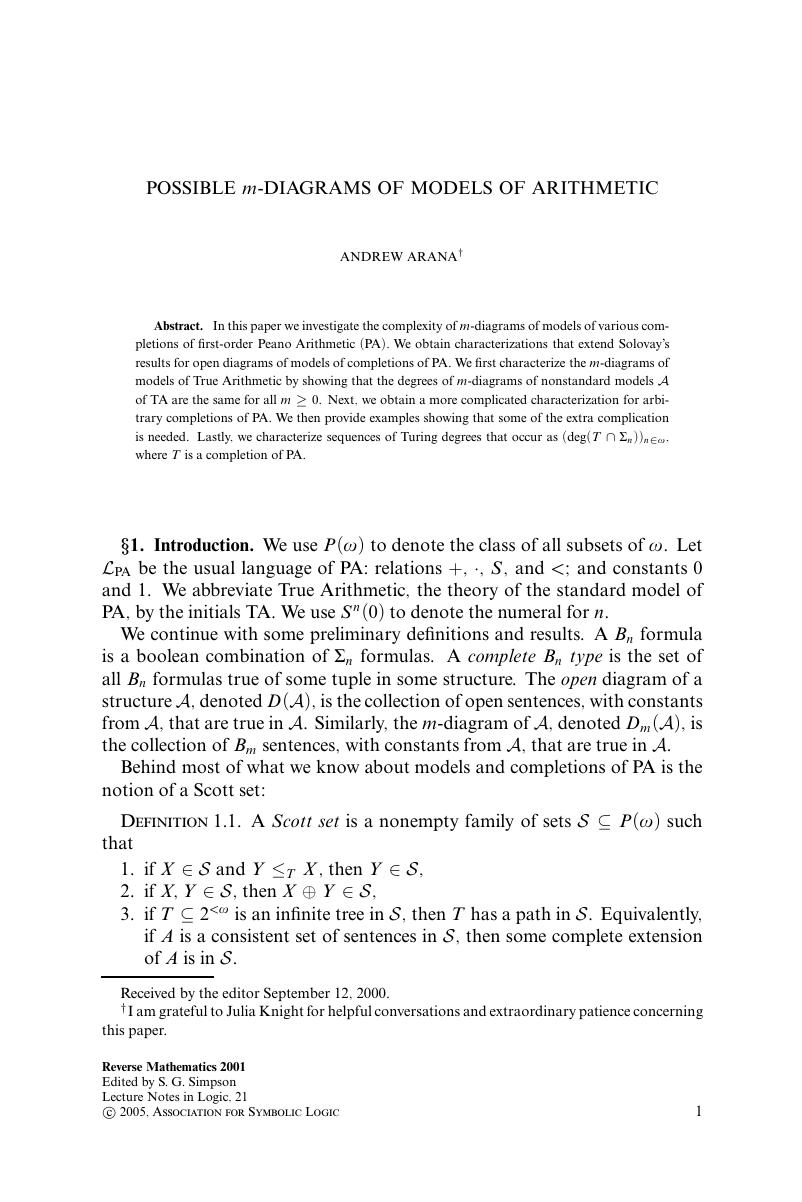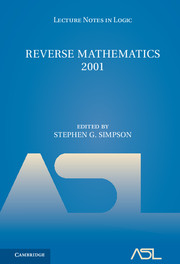Book contents
- Frontmatter
- Preface
- Contents
- Possible m-diagrams ofmodels of arithmetic
- Weak theories of nonstandard arithmetic and analysis
- Notions of compactness in weak subsystems of second order arithmetic
- Proof-theoretic strength of the stable marriage theorem and other problems
- Free sets and reversemathematics
- Interpreting arithmetic in the r.e. degrees under Σ4-induction
- Reverse mathematics, Archimedean classes, and Hahn's Theorem
- The Baire category theoremover a feasible base theory
- Basic applications of weak König's lemma in feasible analysis
- Maximal nonfinitely generated subalgebras
- Metamathematics of comparability
- A note on compactness of countable sets
- A survey of the reversemathematics of ordinal arithmetic
- Reversemathematics and ordinal suprema
- Did Cantor need set theory?
- Models of arithmetic: quantifiers and complexity
- Higher order reversemathematics
- Arithmetic saturation
- WQO and BQO theory in subsystems of second order arithmetic
- Reverse mathematics and graph coloring: eliminating diagonalization
- Undecidable theories and reversemathematics
- Π01 sets and models of WKL0
- Manipulating the reals in RCA0
- Reverse mathematics and weak systems of 0-1 strings for feasible analysis
- References
Possible m-diagrams ofmodels of arithmetic
Published online by Cambridge University Press: 31 March 2017
- Frontmatter
- Preface
- Contents
- Possible m-diagrams ofmodels of arithmetic
- Weak theories of nonstandard arithmetic and analysis
- Notions of compactness in weak subsystems of second order arithmetic
- Proof-theoretic strength of the stable marriage theorem and other problems
- Free sets and reversemathematics
- Interpreting arithmetic in the r.e. degrees under Σ4-induction
- Reverse mathematics, Archimedean classes, and Hahn's Theorem
- The Baire category theoremover a feasible base theory
- Basic applications of weak König's lemma in feasible analysis
- Maximal nonfinitely generated subalgebras
- Metamathematics of comparability
- A note on compactness of countable sets
- A survey of the reversemathematics of ordinal arithmetic
- Reversemathematics and ordinal suprema
- Did Cantor need set theory?
- Models of arithmetic: quantifiers and complexity
- Higher order reversemathematics
- Arithmetic saturation
- WQO and BQO theory in subsystems of second order arithmetic
- Reverse mathematics and graph coloring: eliminating diagonalization
- Undecidable theories and reversemathematics
- Π01 sets and models of WKL0
- Manipulating the reals in RCA0
- Reverse mathematics and weak systems of 0-1 strings for feasible analysis
- References
Summary

Information
- Type
- Chapter
- Information
- Reverse Mathematics 2001 , pp. 1 - 18Publisher: Cambridge University PressPrint publication year: 2005
